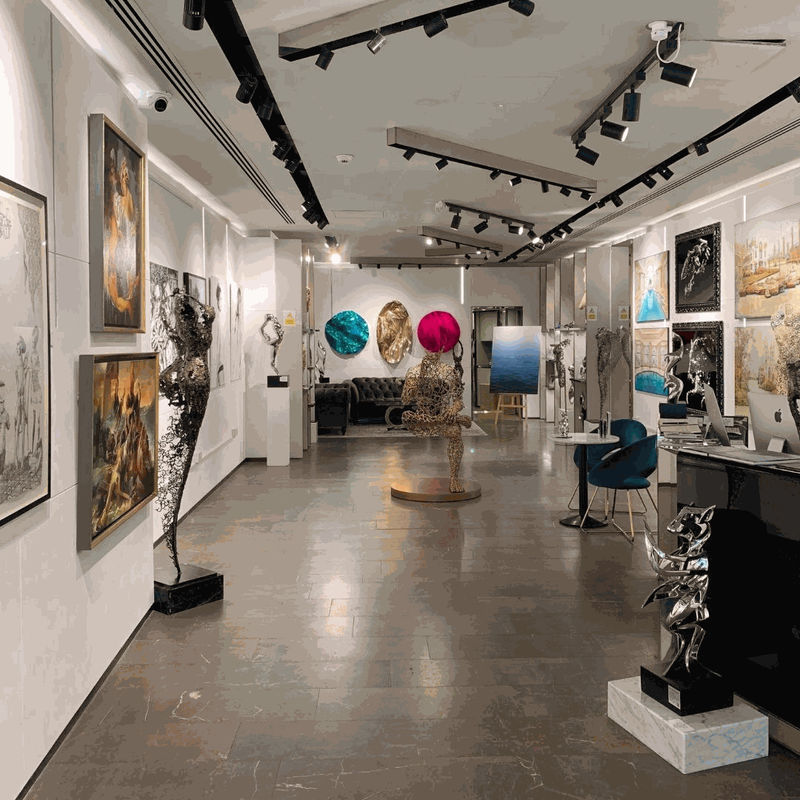Starting an Art Collection: Essential Tips and Guidance
Unlocking the Artistic Journey: Essential Tips for Starting and Growing Your Art Collection
Are you considering starting an art collection? Embarking on this creative journey can be an exciting and enriching experience. Whether you're a seasoned art enthusiast or a novice looking to dive into the world of art, there are several key considerations to keep in mind. In this article, we'll explore some essential tips and guidance to help you begin your art collection on the right foot.
1. How do I start an art collection?
Starting an art collection begins with a clear vision and a genuine passion for art. Consider the following steps to kickstart your collection:
a. Define Your Artistic Preferences: Explore different art styles, genres, and mediums to identify the types of artwork that resonate with you. Take time to visit galleries, attend art exhibitions, and explore online art platforms to broaden your understanding of the art world.
b. Research Artists: Discover emerging artists, established names, and up-and-coming talents. Look for artists whose work captivates you and aligns with your artistic taste. Online art galleries like Eclectic Gallery offer a diverse range of artists and artworks to explore.
c. Set a Budget: Determine a budget that suits your financial capabilities and aligns with your collecting goals. Art collections can be built over time, so it's essential to establish a realistic spending plan.
2. How do you organize an art collection?
As your art collection grows, organization becomes vital to ensure its preservation and easy accessibility. Consider the following tips for organizing your collection:
a. Catalogue and Documentation: Maintain a detailed record of each artwork, including information such as artist name, title, date, medium, dimensions, provenance, and any relevant historical or contextual details. This documentation will help you track your collection's growth and provide valuable information for potential future sales or appraisals.
b. Display and Storage: Create a suitable environment for displaying your art pieces, considering factors like lighting, temperature, and humidity control. Invest in proper framing, display cabinets, or wall-mounted systems to showcase your collection effectively. For artwork not on display, explore appropriate storage options to protect them from potential damage.
3. How do I start an art collection on a budget?
Building an art collection doesn't necessarily require a massive budget. Here are some tips for starting an art collection on a budget:
a. Explore Emerging Artists: Keep an eye on local art schools, graduate showcases, and community art events to discover talented artists at the beginning of their careers. Their works may be more affordable compared to established artists.
b. Limited Edition Prints: Consider collecting limited edition prints or multiples, which are often more accessible in terms of pricing. These can still provide you with the opportunity to own original works by renowned artists.
c. Online Art Platforms: Utilize online art platforms where you can find a range of artworks at various price points. These platforms often offer filters to help you search within your budget.
4. How do I become a good art collector?
Becoming a good art collector involves continuous learning, nurturing relationships, and engaging with the art community. Consider the following tips to enhance your art collecting journey:
a. Educate Yourself: Stay informed about the art market, art history, and current trends. Attend lectures, workshops, and panel discussions to expand your knowledge. Research the artists you collect and deepen your understanding of their artistic practices.
b. Build Relationships: Connect with artists, curators, gallerists, and fellow collectors to build a network within the art community. Attend art events, exhibitions, and gallery openings to engage in meaningful conversations and gain insights.
c. Trust Your Instincts: While it's important to research and gather information, ultimately, trust your instincts and collect what speaks to you on a personal level. Developing your taste and intuition is an essential part of becoming a discerning art collector.
Remember, starting an art collection is a personal and evolving process. Allow yourself the freedom to explore and refine your preferences as you continue on this artistic journey. By following these tips, conducting thorough research, and nurturing your passion, you'll be well on your way to building a meaningful and inspiring art collection.
June 20, 2023

